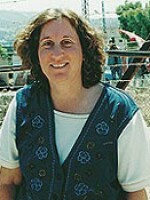LIANE HANSEN, host:
Palestinians have embarked on a diplomatic campaign to convince the international community to lift its aid embargo. This past week, the ruling Hamas and its rival, Fatah, agreed to form a national unity government.
Israel's prime minister said Israel has not yet decided how to respond. Meanwhile, tensions remain high over a controversial Israeli excavation near a site that is holy to Muslims and Jews. NPR's Linda Gradstein joins us now from Jerusalem. Linda, first to Israel's reaction to the new Palestinian unity government. Tell us what you can.
LINDA GRADSTEIN: Prime Minister Ehud Olmert, at the beginning of the Cabinet meeting, said that Israel is studying the document and is sort of taking a wait-and-see attitude that Israel, you know, will not officially respond until it knows exactly what the new government is going to look like.
Privately, however, Israeli officials are concerned that it could lead to the international community lifting the aid boycott, feeling that the new government fulfills the international community's conditions. Israel says that those conditions - that the Hamas, the new government, has to recognize Israel, renounce violence and accept past agreements - hasn't been met by this new government.
So there is some concern. There's also concern because there are reports that Saudi Arabia is going to give this new government $1 billion. Now, if that turns out to be true, then the economic boycott is going to have a lot less effect on the government.
HANSEN: Secretary of State Condoleezza Rice is supposed to travel to the region to play host to Palestinian leader Mahmoud Abbas and Israeli Prime Minister Ehud Olmert for a summit next week. Is that meeting still on?
GRADSTEIN: That meeting is still on. It was agreed on during Secretary Rice's last trip to the region last month. There has been one meeting between Ehud Olmert and Abbas in December, and they're going to continue that. However, with this new government now in formation, it's unlikely that there will be any real progress.
At the same time, you know, the Palestinians are going to be busy with this new government. Ehud Olmert has a lot of domestic problems on his side. So it's unlikely that there's going to be any real progress, but I guess the sense is to at least keep the idea of some sort of a peace process alive.
HANSEN: What's the latest on the disputed construction in Jerusalem's Old City?
GRADSTEIN: Well, today is relatively quiet after two days of clashes. On Friday, about 300 Israeli police went onto the area that Jews call the Temple Mount and Muslims call the Noble Sanctuary and fired tear gas and stun grenades.
Israel has limited the entrance to that Muslim holy site to men over age 45, but there were still protests. The excavation is near a ramp that fell down in a snowstorm three years ago, and Israel rejects Muslim claims that it could undermine the foundations of the mosques that are up there.
Israel says that's ridiculous. It's about 60 yards away from the walls of the mosque and that there's no chance that it would affected, but you know, we've seen in the past that this site has been a flash point. In fact, in the year 2000, when former Prime Minister Ariel Sharon went there, according to some people, that's what sparked the five year intifada or fighting between Israel and the Palestinians, which is called the al-Aqsa Intifada.
HANSEN: NPR's Linda Gradstein in Jerusalem. Linda, thank you very much.
GRADSTEIN: Thank you, Liane. Transcript provided by NPR, Copyright NPR.







